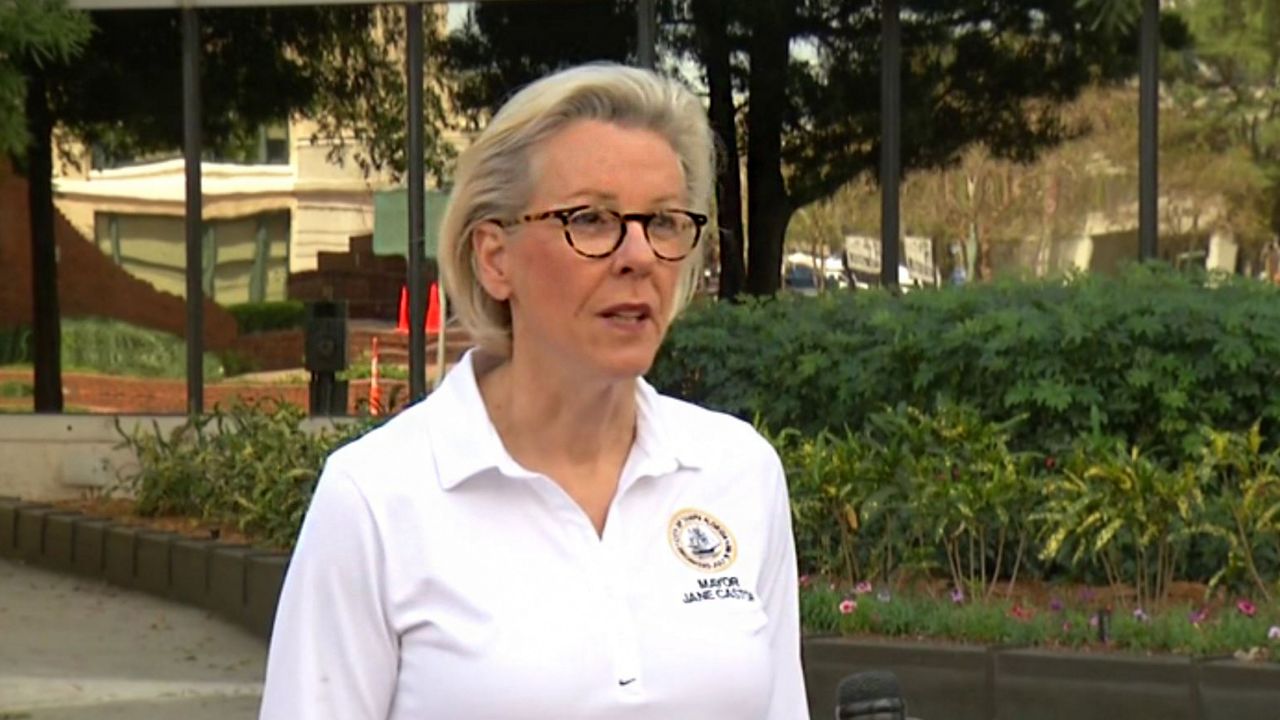TAMPA, Fla. — During an at times contentious discussion, the Tampa City Council on Thursday approved a new ordinance that strengthens provisions with the city’s citizens review board (CRB), the agency which oversees resident complaints about potential misconduct by members of the Tampa Police Department.
The vote was 5-2, with council members Charlie Miranda and Luis Viera dissenting.
What You Need To Know
- Tampa City Council approves new ordinance regarding citizens review board
- Mayor Castor not happy with change that gives council power to have more selections and her office
- Tampa City Council
But Castor says the change the council approved gives them the power to have more selections to the CRB than her office. Castor said that move is non-negotiable.
“The Charter clearly states that the chief of police and the mayor will direct the actions of the Tampa Police Department, and so we are doing that today by implementing these changes for the CRB,” Castor said at a press conference after the vote.
The council’s proposal that they approved gives them the power to name seven members to the 11-member board, giving the mayor four selections.
The proposal that Mayor Castor’s administration supported would have allowed the mayor to have five picks on the board, with the council getting five picks, with an additional 11th member coming from the NAACP (but who also would be selected by the council). Currently, the mayor selects five members and the council four (the additional two are only used as alternates currently).
The vote culminated nearly a year of discussions and negotiations between Castor’s administration, the Tampa Police Benevolent Association (the union representing Tampa police officers), the ACLU and other key players invested in revamping the original CRB that was created under the auspices of former Mayor Bob Buckhorn in 2015.
The first call to reform the CRB came from Councilman Orlando Gudes (a former TPD officer) on June 4, just five days after protests broke out in Tampa and across the world following the death of George Floyd.
Other changes that the mayor and the council do agree on is allowing CRB members to participate in the interview process for new officers, and to allow them to make recommendations to the mayor and chief of police regarding hiring criteria. The CRB can also now review closed internal investigations where certain discipline has been imposed and issue a finding to the chief of police.
Along with the power to select board members, the ACLU of Florida and some council members had deadlocked for months with the administration on two other major issues – the ability to allow the CRB to hire its own independent attorney, and for the board to have subpoena power. Those issues were not resolved.
City attorney Gina Grimes has maintained for months that the council did not have the power to make those decisions.
The council says now that they will discuss those two measures and other potential revisions to the city’s Charter in February, and could opt to put them before the voters as a referendum in the spring 2023 ballot.
Castor said the council was “weaponizing” the Charter by considering putting those measures before the voters.
A representative from the ACLU said the council should have included those changes to give the board more independence.
“They could have given the panel an independent attorney and given them subpoena power. Broward County did that. Miami-Dade County did that. The city of Miami did that. Tampa could have done that,” said James Michael Shaw Jr., the State Legal Panel Chair of the ACLU of Florida. “But they punted it to a discussion about whether or not to put it on the ballot for the voters.”
The meeting became heated at times.
After Councilman John Dingfelder questioned whether Grimes was “carrying the water” of Mayor Castor and/or Police Chief Brian Dugan, the chief fired back.
“Nobody carries Brian Dugan’s water,” he replied, adding that he had been far too quiet about the issue of the CRB over the past year, and he demanded that the council not delay any further in making a decision.
“Police officers have to make split second decisions, yet this council has taken over a year to make decisions on the CRB,” he said. “Quite frankly, this whole thing today has become a clog in the drain of progression.”
That prompted City Councilman Bill Carlson to say that it was “very offensive” for Dugan to blame the council for taking so much time, when he said it was a discussion amongst all members from the community – including the Police Benevolent Association – which were involved in negotiating a strong agreement.
“The end product is excellent,” said Grimes of the mayor’s proposal.
In addition to proposing enhanced changes to the CRB, Mayor Castor also convened a Community Task Force on Policing last year in the wake of the death of George Floyd that included 17 key findings to improve the TPD.



